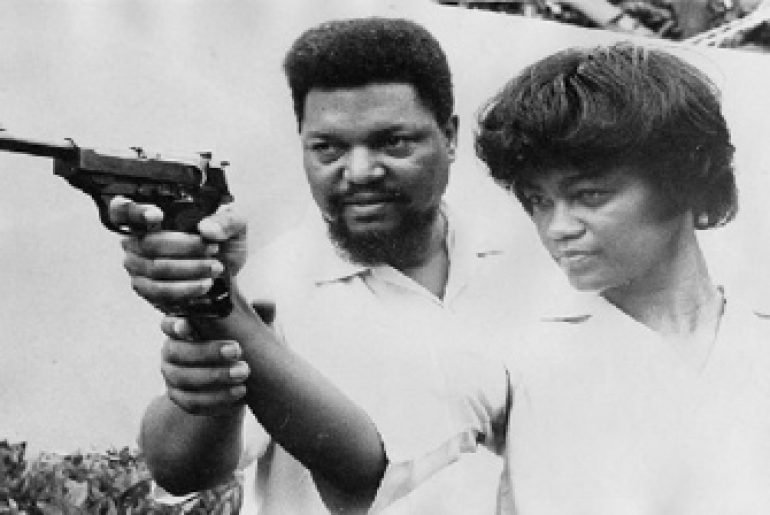The angry mob of white southerners that surrounded Robert Williams and his entourage in June of 1961 met a familiar sight with a deeply disturbing variation. The mob, the police and even the federal government in its absence were following the Jim Crow playbook to the letter, but on this particular day things were not going as planned, so much so that an old man in the crowd wept bitterly.
“God damn, God damn!”, the old man protested through tears, “What is this country coming to that the niggers have got guns! The niggers are armed and the police can’t even arrest them!”
The old man was partially right. Robert Williams and his fellow activists were armed, trained and refused to hand their weapons over to the police without a fight: the police couldn’t stop Robert Williams. But then neither could the Klan or the FBI or the CIA. As one of the Civil Rights movement’s great innovators, Robert Williams would go on to humiliate and demoralize Jim Crow defenders for the next few decades, often doing so with both audacity and wit.
Robert Williams took leadership of the Union County, North Carolina branch of the NAACP in 1954, partially because he was a committed local activist and partially because he had a bit of education and training, but mostly because he was one of the “only fools left” in the chapter. The recent Brown v Board of Education victory had made the NAACP a pariah in Union County, making membership tantamount to a sentence of permanent unemployment, loss of credit or loss of life1. Rather than moderate the chapter or seek counsel and intervention from the National Office, Williams molded it to address the challenges facing his community.
Williams’ support for armed self-defense and some of his more provocative statements would sour relations between he and the national office, but contrary to the opinions of his detractors Williams was a political pragmatist with a local, national and international vision. For example when a local housing ordinance threatened to destroy a black community in North Carolina, Williams wired President Eisenhower – who just so happened to be in India championing the rights of Asians to better housing – urging him to step in. Eisenhower did. And after Kennedy’s failed Bay of Pigs invasion of Cuba, Williams released a statement that the Cuban delegate read before the United Nations, advising Kennedy that if he wanted to arm a group of people being oppressed by a tyrannical regime, he could arm blacks living in the American South. Kennedy didn’t go along with that one. And when local Klansman went on a Night Ride in his community, he and his armed group the Deacons for Defense opened fire on them – then gave directions to a terrified Klansman who had turned down a dead-end street in fear for his life2.
Williams was forced to flee the United States, after being indicted for kidnapping and several other trumped-up charges. He then spent many years in Cuba. There he continued to publish his newsletter ‘The Crusader’, while also producing his radio show ‘Radio Free Dixie‘ which, according to Williams, could be heard all the way from “Saskatchewan to Canada”. His views would continue to inspire movements in the late 1960s, but fear that he might radicalize Cuba’s local blacks ran him afoul of the Castro regime.
After a brief stay in China, where he advised Premiere Zhou Enlai on diplomatic relations with the US, Williams negotiated the terms of his return to the United States. He would ultimately get the charges against him thrown out and advise many movements and organization, while shunning the spotlight. He lived the rest of his days between North Carolina and Michigan, where he passed at the age of 71.
We all owe a debt to Robert Williams, even the old man in the crowd that day whose pleas were not lost on Williams. Rather than dismissing the old man’s cries, he immortalized them in the title of his book and manifesto: Negroes with Guns. Perhaps this offered the old man some comfort… but… well probably not.



